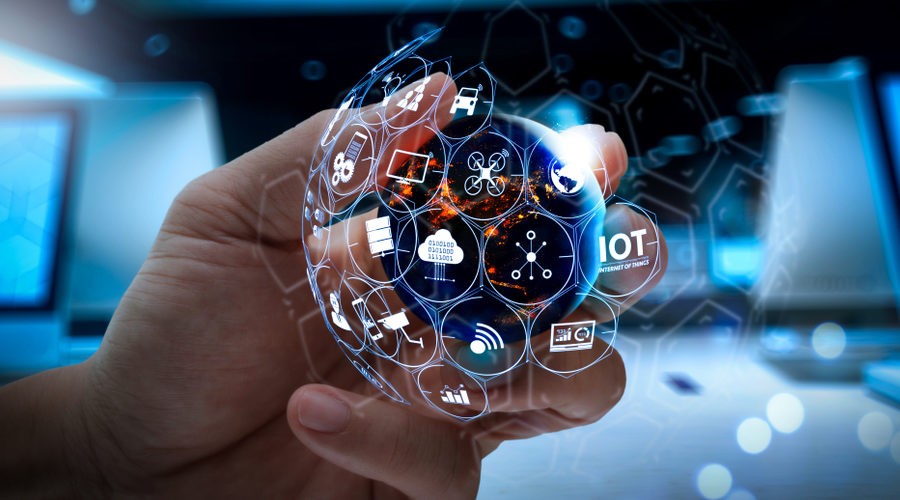In today’s fast-paced world, technology evolves rapidly, creating endless opportunities for innovation and growth. Emerging technologies are at the forefront of this evolution, disrupting industries, transforming societies, and redefining how we interact with the world. From artificial intelligence to quantum computing, these technologies promise to revolutionize every aspect of human life.
This article dives deep into the most prominent emerging technologies of 2024, their applications, and their impact on industries and society.
What Are Emerging Technologies?
Emerging technologies are innovations that are currently under development or in the early stages of adoption. These technologies often leverage advanced scientific research, pushing the boundaries of what is possible. While some are already influencing industries, others hold the potential to disrupt the future significantly.
Key Emerging Technologies to Watch in 2024
1. Artificial Intelligence (AI) and Machine Learning
AI has transitioned from a futuristic concept to a critical component of modern life. Machine learning, a subset of AI, uses algorithms to learn and improve from data without explicit programming.
- Applications:
- Personalized recommendations in e-commerce.
- Predictive analytics in healthcare.
- Chatbots for customer support.
- Autonomous vehicles.
- Impact: AI enhances productivity, optimizes decision-making, and powers automation. However, it also raises concerns about job displacement and ethical considerations.
2. Quantum Computing
Quantum computing is poised to solve problems far beyond the capabilities of classical computers. By harnessing the principles of quantum mechanics, these machines process vast amounts of data simultaneously.
- Applications:
- Drug discovery and genomics.
- Financial modeling and risk analysis.
- Cryptography and secure communication.
- Impact: Industries like healthcare, finance, and logistics are set to benefit immensely. However, its impact on cybersecurity poses challenges, as traditional encryption methods may become obsolete.
3. Blockchain and Web3
Blockchain technology continues to evolve beyond cryptocurrencies. Web3, the decentralized internet built on blockchain, promises to give users more control over their data.
- Applications:
- Decentralized finance (DeFi).
- Supply chain transparency.
- Digital identity verification.
- Impact: Blockchain enhances security, transparency, and efficiency in transactions. Web3 aims to democratize the internet, shifting power from centralized entities to individuals.
4. Extended Reality (XR): AR, VR, and MR
Extended reality (XR) encompasses augmented reality (AR), virtual reality (VR), and mixed reality (MR). These immersive technologies blur the line between the physical and digital worlds.
- Applications:
- Virtual training for employees.
- Immersive gaming and entertainment.
- Remote collaboration and virtual tours.
- Impact: XR technologies transform how we work, learn, and play. They hold immense potential for education, healthcare, and real estate.
5. Renewable Energy Innovations
As climate change becomes a pressing concern, emerging technologies in renewable energy are critical for achieving sustainability goals.
- Applications:
- Advanced solar panels and energy storage.
- Wind turbine efficiency improvements.
- Green hydrogen production.
- Impact: These technologies reduce reliance on fossil fuels, enabling a cleaner, greener future while fostering energy independence.
6. Internet of Things (IoT) and Edge Computing
IoT connects everyday devices to the internet, allowing them to communicate and share data. Combined with edge computing, which processes data closer to the source, these technologies create real-time, intelligent systems.
- Applications:
- Smart homes and cities.
- Predictive maintenance in manufacturing.
- Real-time healthcare monitoring.
- Impact: IoT and edge computing improve efficiency, safety, and convenience in various sectors. However, they also introduce challenges related to data security and privacy.
How Emerging Technologies Are Reshaping Industries
1. Healthcare
- AI in Diagnostics: AI-powered tools help diagnose diseases like cancer with unprecedented accuracy.
- Wearable Tech: IoT devices monitor vital signs, enabling early detection of health issues.
- Telemedicine: XR facilitates virtual consultations and surgeries.
2. Finance
- Blockchain: Enhances security and transparency in transactions.
- AI Algorithms: Analyze market trends for better investment strategies.
- Quantum Computing: Optimizes portfolio management and risk assessment.
3. Education
- XR: Creates immersive learning environments.
- AI Tutors: Provide personalized learning experiences.
- IoT: Enables smart classrooms with connected devices.
4. Transportation
- Autonomous Vehicles: Revolutionize personal and public transport.
- Renewable Energy: Promotes electric and hydrogen-powered vehicles.
- IoT Sensors: Improve traffic management and safety.
Benefits of Emerging Technologies
- Increased Efficiency: Automation and advanced analytics save time and resources.
- Improved Quality of Life: Innovations in healthcare and renewable energy address global challenges.
- Economic Growth: New technologies create industries and job opportunities.
- Sustainability: Green technologies combat climate change.
Challenges Facing Emerging Technologies
- Ethical Concerns: AI biases, privacy issues, and data misuse need regulation.
- High Costs: Developing and deploying new technologies often requires significant investment.
- Cybersecurity Risks: Technologies like IoT and blockchain demand robust security measures.
- Adoption Barriers: Resistance to change and lack of awareness slow adoption.
The Future of Emerging Technologies
The rapid pace of technological advancement suggests that the future holds unimaginable possibilities. Innovations like brain-computer interfaces (BCI), nanotechnology, and space technologies are on the horizon, promising to redefine human potential. As these technologies mature, collaboration between governments, businesses, and researchers will be crucial for addressing global challenges and ensuring equitable benefits.
Conclusion
Emerging technologies are reshaping the world, driving innovation, and solving complex problems. From the promise of quantum computing to the sustainability offered by renewable energy, these advancements unlock possibilities across industries. While challenges like ethical considerations and high costs remain, the potential benefits far outweigh the risks.
As we embrace these innovations, staying informed and adaptable will be critical for individuals and businesses alike. The future is being built today, and emerging technologies are the foundation for a brighter, more connected tomorrow.

